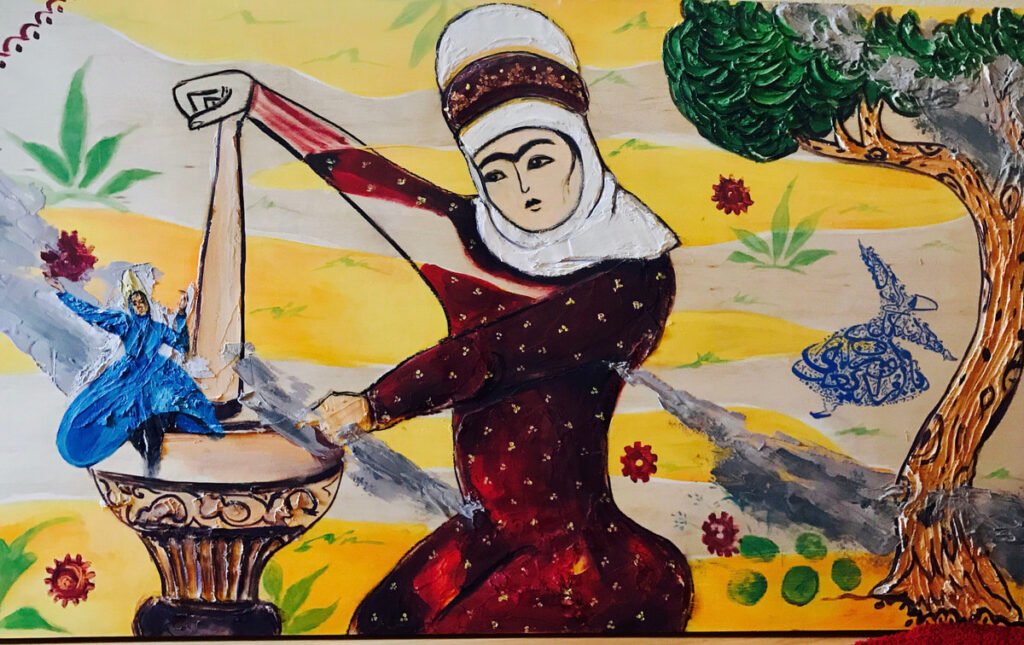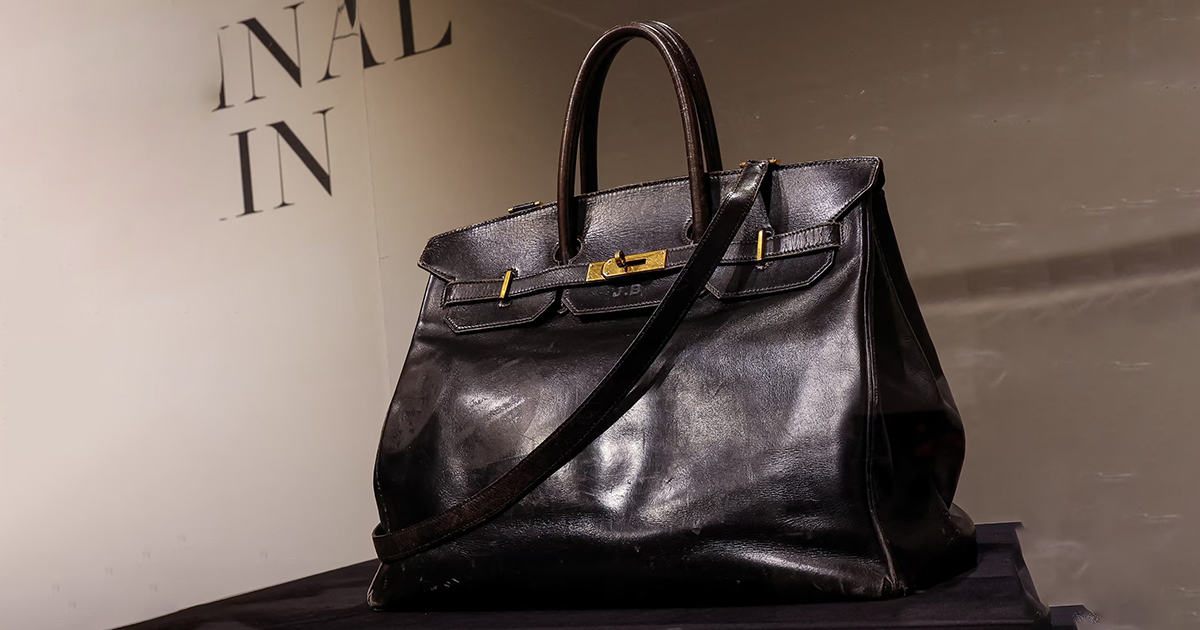When Spanish pop sensation Rosalía released her third studio album LUX this month, few expected the project to feature Arabic lyrics inspired by an 8th-century Sufi saint from Basra, Iraq.
Yet, in “La Yugular,” one of the album’s most striking tracks, Rosalía pays tribute to Rabia Al-Adawiyya, widely considered Islam’s first female Sufi saint, by weaving together flamenco’s Andalusian roots with Sufi spiritual traditions.
“For me, there are ideas in different religions that I resonate with,” Rosalía explained in a recent interview with EL PAÍS. “I resonate with Buddhism, Islam, Christianity, and Hinduism.” But it was Rabia Al-Adawiyya’s teachings on divine love that particularly captivated the artist during the creation of LUX, an album she describes as exploring “love, God, faith, and the divine feminine.”
Who Was Rabia Al-Adawiyya, The First Female Sufi Saint?

Born in Basra, Iraq, in 717 CE, less than a century after the Prophet Muhammad’s passing, Rabia Al-Adawiyya emerged as one of the most influential figures in early Islamic mysticism.
Known by various names, including Al-Basriyyah and Al-Qaysiyyah, she earned the title “Lady of the Hereafter” for her unwavering devotion to God.
Her early life was marked by hardship. Orphaned at a young age and later sold into slavery for merely six dirhams during a famine, Rabia accepted her difficult circumstances and focused on deepening her spiritual practice. According to traditional accounts, her master freed her after overhearing her heartfelt prayer: “O Lord, You know that the desire of my heart is in the service of Your court. If the matter rested with me, I would not cease for one hour from Your service.”
Once freed, Rabia retreated to the desert, where she devoted the remainder of her life to prayer, fasting, and spiritual contemplation, before returning to Basra. Her reputation as a spiritual teacher grew, attracting scholars and disciples who sought her guidance, including prominent figures like the jurist Sufyan ath-Thawri.
The Doctrine of Divine Love: Rabia Al-Adawiyya’s Core Teaching
Rabia Al-Adawiyya is celebrated as the founder of the doctrine of divine love in Islam, the revolutionary concept of loving God purely for His own sake, rather than out of fear of Hell or desire for Paradise. This philosophy is perhaps best captured in her famous prayer:
“O Lord, if I worship You out of fear of Hell, burn me in Hell. If I worship you in the hope of Paradise, forbid it to me. And if I worship You for your own sake, do not deprive me of your eternal beauty.”
To embody this principle, she famously carried fire and water through the streets, symbolically seeking to destroy both Hell and Heaven so that devotion would come only from pure, selfless love. When asked about marriage proposals, including one from the ruler of Basra offering vast wealth, she consistently declined, stating she did not wish to be distracted from God for even a moment.
Her relationship with the Divine was remarkably intimate and direct. She referred to God as her “Friend” and “Beloved,” engaging in constant conversation through munajat (intimate prayers). When asked about Paradise, she replied with characteristic focus: “First the Neighbour, then the House”, emphasizing that knowing God mattered more than the rewards of Paradise itself.
Rabia Al-Adawiyya died in Basra in 801 CE, leaving behind a legacy that continues to inspire spiritual seekers around the world. Her life and teachings remind us that the deepest human experiences, love, devotion, and the search for meaning, unite us across all boundaries.
From Basra to Barcelona: Rabia Al-Adawiyya’s Influence on Rosalía’s LUX
This eighth-century saint’s influence reaches across more than a millennium to shape Rosalía’s 2025 album. In “La Yugular,” Rosalía sings in Arabic: “من أجلك أدمَّر السماء، من أجلك أهدم الجحيم، فلا وعود ولا وعيد” (“For you, I would destroy the heavens, for you, I would demolish hell, without promises and without threats”), a direct echo of Rabia’s philosophy of unconditional devotion.

The song’s title itself carries profound spiritual significance. “La Yugular” (the jugular) refers to the vein in the neck, and Rosalía sings: “Tú que estás lejos, y a la vez más cerca que mi propia vena yugular” (“You, who are far away and yet closer than ever to my own jugular vein”). This line recalls Surat Qaaf (Qur’an 50:16), where Allah is described as being closer to a person than their jugular vein.
In the second verse, Rosalía references another of Rabia’s famous teachings: “Mira, yo no tengo tiempo para odiar a Lucifer. Estoy demasiado ocupada amándote a ti, Undibel” (“Look, I’ve got no time to hate Lucifer; I’m too busy loving you, Undibel”). This echoes Rabia’s explanation that she had no time to hate the devil because she was too occupied with loving God, a teaching that emphasizes focusing on divine love rather than on negativity or opposition.
A Transcendent Legacy: The Continued Influence of Rabia Al-Adawiyya
Rabia Al-Adawiyya’s life and teachings have fascinated both Muslims and Christians for centuries. The earliest biographies appeared within generations of her death, with scholars like Imam Ghazali in Ihya Ulum Din referring to her as a leading teacher of Sufism. The 13th-century Persian poet Farid al-Din Attar compared her purity to that of Maryam (Mary) and her greatness to Aisha, justifying her inclusion as the only woman in his Memoirs of the Saints by asking: “If we can take two-thirds of faith from Aisha, why not spiritual advice from Rabia?”
Her emphasis on divine love over fear, her intellectual rigor as a spiritual teacher, and her model of complete reliance on God continue to inspire seekers across religious and cultural boundaries. As one of her poems beautifully expresses:
“I love You with two loves, a selfish love
And a Love that You are worthy of.
As for the selfish love, it is that I think of You,
To the exclusion of everything else.
And as for the Love that You are worthy of,
Ah! That I no longer see any creature, but I see only You!”
A Love Letter to Arabic
For Rosalía, incorporating Rabia’s teachings and singing in Arabic represents what she calls “my love letter to Arabic.” The choice bridges her own Andalusian heritage, where Islamic, Christian, and Jewish cultures once flourished together, with the spiritual traditions of the Middle East.
LUX, which took three years to complete and features lyrics in 13 languages, represents Rosalía’s personal and artistic transformation following her split from Puerto Rican singer Rauw Alejandro. Moving away from the “minimalist” Caribbean and reggaeton sounds of her Motomami era, she embraces what she calls a “maximalist” approach, one that draws on holy women and mystic feminine figures across cultures, from Saint Hildegard of Bingen to Saint Ryonen Genso of Kyoto.
Yet it is perhaps Rabia Al-Adawiyya’s example that resonates most powerfully through the album. Just as Rabia transformed her suffering into unwavering devotion, Rosalía transforms heartbreak into spiritual renewal. Both women, separated by more than twelve centuries and vastly different contexts, share a common quest: the ceaseless search for divine closeness and the limitless nature of love.
As the album closes “La Yugular” with a sample from a 1976 Patti Smith interview, “Seven heavens–big deal! I wanna see the eighth heaven, tenth heaven, thousandth heaven”, Rosalía reminds us that the spiritual journey, like Rabia’s own path, is endless. The search for deeper connection, for transcendence, for the divine beloved continues beyond any single achievement or milestone.
In bringing Rabia Al-Adawiyya’s voice to a global pop audience, Rosalía offers not just a “love letter to Arabic,” but a testament to how spiritual wisdom transcends time, language, and culture, illuminating paths forward for seekers in every age.







